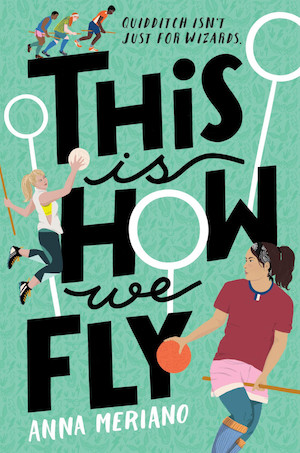
About the Book
-
Author:
- Anna Meriano
- Genre:
- Contemporary
Cover Story: Fake Out
BFF Charm: Roger Murtaugh
Talky Talk: Needs More Talk
Bonus Factors: IRL Quidditch
Anti-Bonus Factor: Awful Grownups
Relationship Status: We Can Play Together, But We Can’t Play Together
Cover Story: Fake Out
If you didn’t know this book was about Quidditch—the real life sport based on the wizarding sport from the Harry Potter universe—(and you didn’t read the blurb at the top) you’d likely be wondering what the heck the people on the cover were doing. What are those balls? Why are thy running with sticks between their legs? What sport has three hoops? But if you are at least a little familiar with the sport, you’ll get excited about this cover and what it foretells for the story within.
The illustrations and the unique title treatment are also great.
The Deal:
Ellen Lopez-Rourke is a vegan, a feminist, maybe questioning where she fall son the gender spectrum, and looking forward to moving to Austin at the end of the summer to start her freshmen year at the University of Texas.
But first she has to make it through the summer, living at home with her stepmother, who barely tolerates her, semi-absent father, and sweet younger step-sister who always seems to be in the middle of the family’s fights. Ellen doesn’t see summer Quidditch, which her best friend Melissa talks her into playing, as a way out of home life, but then she’s grounded, and Quidditch—and the promise of physical activity—is the only thing that gets her away from her stepmother’s endless chore list and seeming inability to care that Ellen doesn’t eat food made from animal products.
BFF Charm: Roger Murtaugh
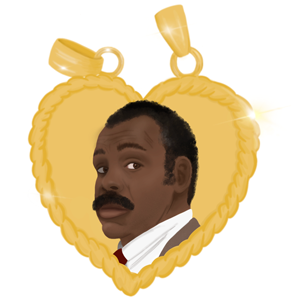
I really wanted to like Ellen, and there were times that I did. But for the most of the book, she came across as completely unwilling to stand up for herself in a productive way, instead choosing to fly off the handle (heh) or cower in the face of “setting off” her stepmother and causing her to leave (again … no one wants a repeat of what happened at Christmas). There’s no inbetween with Ellen, and although we’re closer in age than many a YA character (by only like a year, but whatever), her immaturity was grating.
Swoonworthy Scale: 5
There’s a guy on Ellen’s team who takes an interest in her ans shows it by being an ass. Then there’s a hot guy from a rival team who she shares a moment with on the field—and then makes meaningful eye contact with after the game. Neither are that swoony, but at least the situation with the latter gives a feeling of early college/”I don’t know this person, but I’d like to”/missed connection butterflies.
Talky Talk: Needs More Talk
Meriano, who lists playing full-contact Quiddich in her bio, obviously knows a thing or two about the sport, and that knowledge translated quite well to the page. What didn’t translate well, however, were her characters. I found myself not wanting to root for anyone, even Ellen, and endlessly frustrated with everyone’s immaturity, selfishness, unkindness, and unwillingness to have an actual conversation. (Except for perhaps two or three of the tertiary characters, but there weren’t enough scenes with their good qualities to override the poor ones.) This is How We Fly reads like an early draft that would have benefitted from another round of editing to make the characters more appealing and more believable; I wanted to get sucked into this story, but found myself too frequently pulling away from it with a groan.
Bonus Factor: IRL Quidditch

I’ve never seen a real-life Quidditch match, but it seems like it would be as confusing to watch as one in the Wizarding World, without the additional excitement of people flying around on brooms. I wish Quidditch had become a thing slightly earlier; I would have loved to give it a go while I was in college, but US Quidditch didn’t kick off until 2005, when I’d already graduated. I love it’s inclusive nature! (Learn more about US Quidditch here.) But now, I fear, I am much too old. Is there a seniors league?
Anti-Bonus Factor: Awful Grown-ups
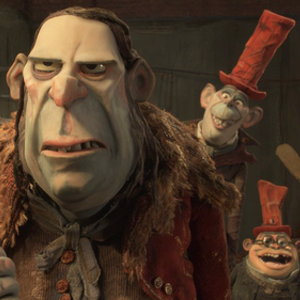
This is How We Fly is billed as a loose retelling of Cinderella, which I’d forgotten about while reading, and I don’t think really fits the story at all. At least, not to the extent that it works. Ellen’s stepmother is awful, but not awful enough to be a true villain; she mostly just frustrated me to the point where I wanted to stop reading, rather than actually rooting for her to get her just desserts. She was as bad as Ellen when it came to communication, and her passive agressive attitude toward her husband made me want to scream. The family has some serious problems without them seeming so serious, if you know what I mean.
Relationship Status: We Can Play Together, But We Can’t Play Together
It’s cool if we’re teammates and see each other on the Quidditch pitch, Book, and I won’t make things weird while we’re playing. But I’m going to have to pass on any other hanging out, unless the rest of the team’s coming along.
Literary Matchmaking
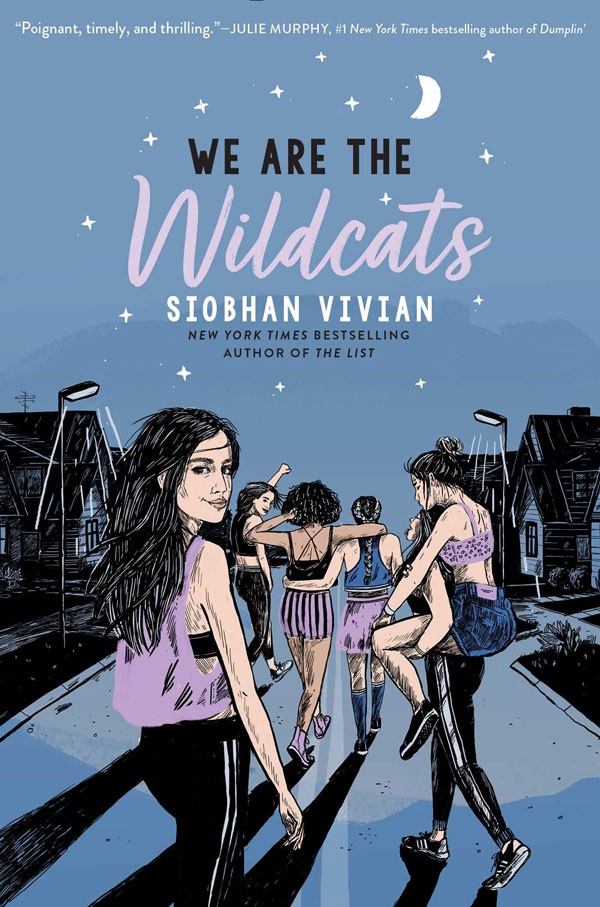
For another sports novel with feminist flair, check out Siobhan Vivan’s We Are the Wildcats.
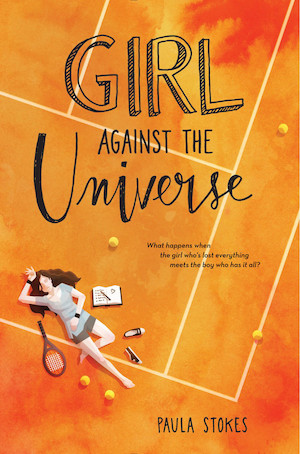
Paula Stokes’s Girl Against the Universe uses tennis as a coping mechanism.

And Sara Farizan’s Here To Stay examines social activism through the lens of high school basketball. (And includes an actually good mother!)
FTC Full Disclosure: I received a copy of this book from Philomel Books, but got neither a private dance party with Tom Hiddleston nor money in exchange for this review. This is How We Fly is available now.